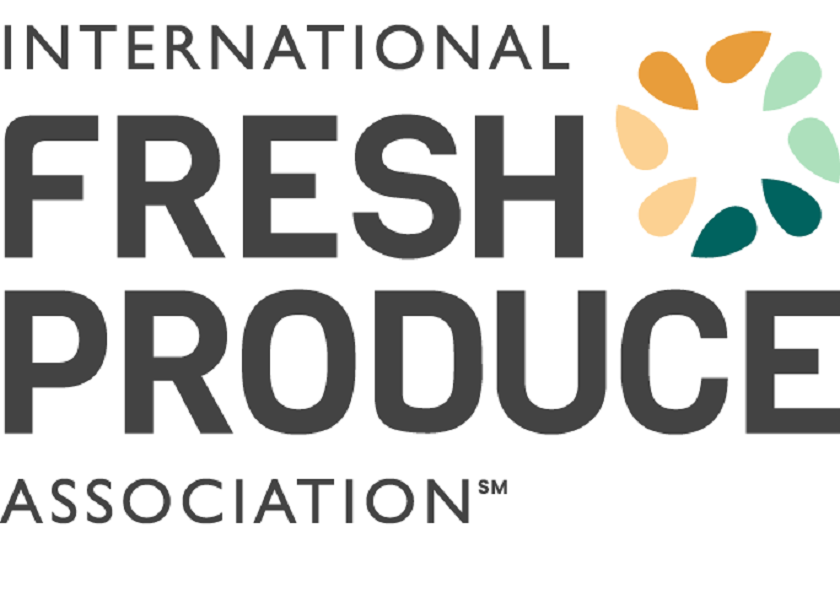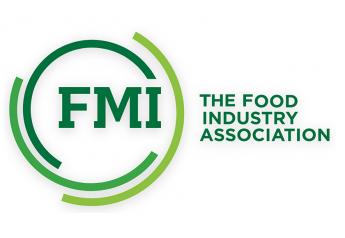IFPA stakes out produce safety priorities, looks to ag water and traceability rules

The creation of the International Fresh Produce Association from the merger of the United Fresh Produce and Produce Marketing associations has allowed a reorganization of food safety priorities, said Jennifer McEntire, chief food safety and regulatory officer for the group.
From McEntire’s perspective, the two main food safety-related changes linked to the launch of the new association include the ambitions to play a more active role in global food safety issues and to expand the focus on produce quality issues.
Emily Griep, vice president of regulatory compliance and global food safety standards, is getting more involved in the food safety standard-setting body the U.S. Codex Program, in addition to working with the Global Food Safety Initiative, McEntire said.
IFPA is looking at opportunities to expand food safety resources to a global audience, McEntire said.
“I think we have some good resources for people, we have some good training for people,” she said. “Then, the question is, how do we partner with others to expand that scale, so to make sure that the members around the world have access to the resources, not just those in the U.S. or in North America?”
The addition of Gretchen Wall as IFPA’s director of food safety and quality will give the association new opportunities for growth in produce quality training, resources and education, McEntire said. “To have that expertise, that capacity is a whole new space to serve the industry."
The association continues to dialogue with the U.S. Food and Drug Administration, looking at opportunities for partnership and improved communication with the agency.
“We want to make sure that that the food (safety) piece gets its deserved attention and isn't playing second, third, fourth, fifth fiddle to drugs and devices, vaccines and cosmetics and tobacco,” she said. “We want to make sure that food that the commissioner understands the attention to food needs. That's kind of a Herculean effort, but one that I think by working with other stakeholders, we will be effective because it's just the right thing to do.”
Ag water
McEntire said that the FDA and the U.S. Environmental Protection Agency have updated a protocol to provide the data that can be used for chemical providers to make label claims for treating irrigation water.
“As we consider what's going to be finalized by FDA in the ag water rule, some people may think that treatment is the best option for them, once they evaluate risks,” she said. “So, how can we make sure that the industry has tools available to properly and legally treat water, and know that it's going to be effective? It is easier said than done.”
McEntire said having the updated protocol will be helpful to growers to be able to demonstrate whether treating ag water in a particular way actually works.
The FDA’s ag water rule is yet to be finalized, with the timeline still uncertain.
“I’m hopeful that the rule will be finalized soon, and that it will be finalized pretty close to the way that it was proposed," McEntire said.
McEntire's sentiments toward the ag water rule, however, lies in direct contrast to her thoughts on the proposed traceability rule, which also has yet to be finalized. McEntire said the rule could be a heavy burden on the industry.
“I don’t know of anyone who was happy with how (the proposed traceability rule) came out,” she said of the proposed rule that would establish additional and extensive traceability recordkeeping requirements on those who manufacture, process, pack or hold high-risk foods designated for inclusion on the food traceability list. The FDA is bound by a consent decree to have the final rule published by the end of November, she said.
IFPA will have a virtual town hall on the topic scheduled for Dec. 14. That session to analyze the final rule will be led by IFPA’s Ed Treacy, vice president of supply chain and traceability.
In whatever final form it appears, McEntire said the FDA’s traceability rule has enormous implications for the industry.
“I think that this will have broader implications for the breadth of the industry, maybe more than any other Food Safety Modernization Act-related rule,” she said. No other food safety regulation will touch on all the parts of the industry as much as the traceability rule, she said.
The FDA is, on paper, restricted to limit the rule to what Congress called high-risk foods, she said.
“But, when you think of the complexity of the food supply and the number of entities that are handling foods that are on the list and foods that are off the list, I think this rule will have quite an impact on the industry,” she said. “People are going to have to track where product came from and where product went to, with much more granularity than they do today.”
McEntire said the extent of granularity and specificity are to be determined, but that the amount of information that FDA proposed would need to be captured was “kind of over the top.”
“I am cautiously optimistic that the agency will scale back and that their requirements will be more feasible,” she said. “'More' is the operative word here, because I think it'd be a challenge for some parts of the industry to do what FDA wants.”







